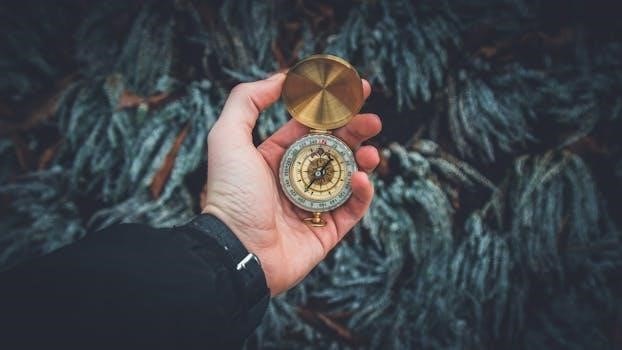Embark on an epic journey through Norrath with our comprehensive Project 1999 Shaman leveling guide! Whether you are a seasoned veteran or a fresh-faced newbie, this guide will provide invaluable insights into efficiently leveling your Shaman. Discover the best strategies, zones, spells and gear to maximize your experience gain.
Shaman, a versatile and powerful class in EverQuest, offer a unique leveling experience on the Project 1999 server. This guide aims to provide a structured approach to efficiently leveling your Shaman from the initial steps to the mid-game. The Shaman class is well-rounded with offensive and defensive spells as well as buffs.
Shamans have a high amount of protection, which helps greatly when soloing. They have two forms of offense, damage over time spells and cold damage-based direct damage spells. In terms of defense and debuffs, Shamans have the most powerful slowing spells and resistance debuffs in the game.
Shamans also have the best buffs in the game, able to increase all statistics except for Wisdom and Intelligence by over 50 points at higher levels. Downtime is also minimized with Shamans with both a health regeneration spell, direct healing spells, and a hitpoint to mana conversion spell.
This guide will delve into various aspects of Shaman leveling, including race selection, essential spells, solo and group strategies, weapon skills, trade skills, mana management, recommended zones, deity choice, and gear progression. By following this guide, you’ll optimize your Shaman’s leveling process and unlock their full potential on P99.

Race Selection and Starting Stats
Choosing your Shaman’s race is a crucial first step, influencing your starting stats, faction, and overall playstyle. Project 1999 offers four distinct Shaman races⁚ Barbarians, Ogres, Trolls, and Iksar. Each race possesses unique advantages and disadvantages that cater to different preferences.
Barbarians are the only non-evil race, offering easier access to good-aligned cities and faster leveling. Ogres boast high Strength and Stamina, along with frontal stun immunity. Trolls regenerate health at an increased rate. Iksar share regenerative abilities, can forage, and have an innate AC bonus.
The primary stats for Shamans are Stamina and Wisdom. Stamina increases hit points, indirectly boosting mana through Cannibalize. Wisdom directly enhances mana pool. Agility is also important, especially for Ogres, to mitigate AC penalties.
Consider your desired playstyle when selecting a race. If you prioritize faction and leveling speed, Barbarian is a solid choice. For survivability and raw power, Ogres excel. Trolls offer sustain, while Iksar provide unique racial traits. Carefully weigh these factors to create a Shaman that aligns with your goals.
Essential Spells for Leveling
As a Shaman, mastering the art of spell selection is paramount to efficient leveling on Project 1999. Certain spells will prove invaluable as you progress, enhancing your survivability, damage output, and overall effectiveness. Prioritize acquiring these essential spells to optimize your leveling experience.

Early on, focus on obtaining damage-over-time (DoT) spells like Poison Bolt and Disease Cloud. These spells allow you to inflict significant damage while conserving mana. Root is crucial for controlling enemies, providing you with time to cast spells or regenerate mana. Healing spells, such as Minor Healing and Cure Poison, are essential for maintaining your health.
As you level, acquire stronger DoTs, such as Venom of the Snake and Plague. Slow is indispensable for reducing enemy damage output and increasing your survivability. Buffs like Spirit Pouch and Focus provide valuable stat boosts. Cannibalize becomes a cornerstone for mana regeneration, allowing you to convert health into mana.
Remember to research and prioritize spells that complement your playstyle. Experiment with different combinations to discover what works best for you. By carefully selecting your spells, you can create a formidable Shaman capable of conquering the challenges of Project 1999.
Solo Leveling Strategies (Levels 1-50)

Solo leveling a Shaman on Project 1999 requires a strategic approach, leveraging your unique abilities to overcome challenges. From levels 1 to 50, focus on maximizing efficiency and minimizing downtime to accelerate your progress.
In the early levels (1-10), concentrate on killing readily available creatures in your starting zone. Utilize your DoT spells, Root, and basic healing to dispatch enemies efficiently. As you gain levels, explore nearby zones with higher-level mobs.
Between levels 10 and 30, consider root-rotting or kiting strategies. Root an enemy, apply DoTs, and maintain distance while the DoTs whittle down its health. Alternatively, kite enemies by slowing them and running in circles while DoTs inflict damage.
From levels 30 to 50, explore more challenging zones with higher experience yields. Utilize your pet to tank enemies, allowing you to cast spells safely. Always keep your buffs active and maintain a healthy mana pool.
Remember to adapt your strategy based on the specific zone and enemies you encounter. Experiment with different tactics and spells to find what works best for your Shaman. By mastering these solo leveling strategies, you can efficiently reach level 50 and beyond;
Group Leveling Strategies
Joining a group significantly enhances the leveling experience for a Shaman on Project 1999. As a versatile support class, Shamans bring invaluable utility to any party, contributing to both survivability and damage output.
In a group, your primary role is to buff, debuff, and heal. Keep your group members buffed with stat enhancements, regeneration, and attack speed buffs. Debuff enemies with slows and stat reductions to weaken their attacks and spells. Use your healing spells to keep the tank alive and the group healthy.
Coordinate with your group to maximize efficiency. Communicate enemy types, resistances, and strategies. Focus your debuffs on the most dangerous enemies and prioritize healing for the tank. Use your DoTs on enemies that will live long enough for the damage to be effective.
Be mindful of your mana pool and use Cannibalize efficiently to maintain your mana levels. Consider specializing in Alteration to reduce the mana cost of your buffs and heals.
When choosing a group, look for a balanced composition with a strong tank, reliable damage dealers, and complementary support classes. A well-coordinated group can clear content much faster than soloing, leading to rapid experience gain and loot acquisition. Embrace the power of teamwork to accelerate your leveling journey.
Weapon Skills⁚ Blunt vs. Piercing
Shamans on Project 1999 have access to both blunt and piercing weapon skills, but understanding their nuances is crucial for optimizing combat effectiveness. While Shamans can utilize piercing weapons, blunt weapons generally offer a more advantageous path for leveling and overall performance.
Blunt weapons often provide better damage output and are more readily available with desirable stats. Many readily accessible blunt weapons offer beneficial effects or stats that enhance a Shaman’s capabilities, such as increased mana, hit points, or spell damage. These advantages often outweigh the potential benefits of piercing weapons.
While some piercing weapons may seem appealing, they often lack the consistent damage and stat bonuses found on comparable blunt weapons. Furthermore, blunt weapons tend to scale better with Shaman buffs, leading to higher overall damage potential.
Ultimately, prioritizing blunt weapon skill is generally recommended for Shamans on Project 1999. Focus on acquiring and mastering blunt weapons to maximize your damage output and overall combat effectiveness while leveling. Although piercing weapons are an option, their limited availability of good weapons and weaker damage scaling make them a less optimal choice for most situations.
Alchemy as a Trade Skill for Funding
Alchemy is a unique and valuable trade skill for Shamans on Project 1999, offering a reliable means of generating income to fund spell purchases, equipment upgrades, and other essential expenses; As the only class capable of mastering Alchemy, Shamans can leverage this skill to create potions with various effects, catering to both personal use and market demand.
Leveling Alchemy involves combining various ingredients to produce potions, with success rates increasing as your skill improves. While some potions are more complex and require rarer ingredients, others can be crafted with readily available components, making them ideal for consistent income generation.
Selling potions to other players or vendors provides a steady stream of cash, which is crucial for Shamans who often rely on expensive spells to enhance their abilities. Popular potions, such as those that restore health or mana, tend to have high demand, ensuring quick sales and consistent profits.
Furthermore, Alchemy can provide self-sufficiency, allowing Shamans to create their own essential potions, reducing reliance on external sources and saving valuable currency. By investing time and effort into Alchemy, Shamans can ensure financial stability and enhance their overall gameplay experience on Project 1999.
Managing Mana Efficiency⁚ Cannibalize
Cannibalize is a crucial spell line for Shamans in Project 1999, offering a unique method of mana regeneration by converting hit points into mana. Mastering the use of Cannibalize is essential for maintaining mana efficiency, especially during solo leveling or extended group sessions where downtime can be detrimental.
The Cannibalize spell line consists of multiple ranks, each with varying ratios of hit point cost to mana gain. Understanding these ratios and strategically utilizing the appropriate rank based on your current health and mana levels is key to maximizing efficiency. Higher ranks generally offer better conversion rates but consume more hit points.
Effective use of Cannibalize requires careful monitoring of your health and mana pools. It’s crucial to avoid using Cannibalize when your health is low, as this can leave you vulnerable to enemy attacks. Conversely, using Cannibalize when your mana is already full is wasteful and inefficient.

Combining Cannibalize with other mana regeneration techniques, such as clarity potions or focus items, can further enhance your mana efficiency. Additionally, certain gear pieces offer mana regeneration bonuses, which can synergize well with Cannibalize to minimize downtime and maximize your spellcasting potential. By mastering the art of Cannibalize, Shamans can maintain a steady flow of mana and remain effective in various combat scenarios.
Recommended Leveling Zones
Choosing the right leveling zones is crucial for efficient progression on your P99 Shaman. The optimal zones depend on your level, gear, and playstyle, whether you prefer soloing, grouping, or a combination of both. Early levels (1-10) can be spent in newbie zones like Everfrost, Innothule Swamp, or the Feerott, focusing on killing readily available creatures.
As you progress (levels 10-20), consider moving to zones like Kurn’s Tower, Unrest, or Blackburrow for increased experience gains. Kurn’s Tower, in particular, offers an excellent experience modifier, making it ideal for faster leveling during these levels. Unrest provides a good mix of undead and other creatures, while Blackburrow offers a challenging but rewarding experience.
Mid-levels (20-40) offer a wider range of options, including Oasis of Marr, South Karana, Lake of Ill Omen, and Frontier Mountains. These zones provide a variety of creatures and quests to keep you engaged and earning experience. At higher levels (40+), consider exploring zones like City of Mist, The Overthere, or even starting on some Velious content depending on your gear and group availability.
Ultimately, the best leveling zones will depend on your preferences and circumstances. Experiment with different zones to find what works best for you, and don’t be afraid to adjust your strategy as you level up. Remember to consider factors like experience modifier, creature density, and loot drops when making your decision.
Deity Choice and Its Implications
A Shaman’s choice of deity in Project 1999 carries significant implications, affecting faction, available quests, and deity-specific items. Barbarian Shamans are bound to The Tribunal, granting them good-aligned faction and easy access to many cities. This makes banking and resupplying significantly easier, especially in the early game.
Trolls have a choice between Cazic-Thule and Innoruuk, both evil-aligned. Cazic-Thule focuses on fear and control, while Innoruuk emphasizes hatred and aggression. Ogres are devoted to Rallos Zek, aligning them with evil factions and granting favor with the Kromzek and Kromrif giants of Velious.
Iksar are dedicated to Cazic-Thule, suffering from widespread negative faction, even among fellow Cazic-Thule worshippers. This makes city travel and interactions challenging, requiring careful faction management. Each deity offers unique quests and may provide access to specific gear, influencing your character’s progression and playstyle.
Consider your preferred playstyle and tolerance for faction management when choosing a deity. Good-aligned Barbarians enjoy easier city access, while evil-aligned races offer unique roleplaying opportunities and potential access to powerful deity-specific items. The decision is a crucial aspect of your Shaman’s identity and gameplay experience.
Gear Progression and Recommendations
Equipping your Shaman effectively is crucial for survival and efficient leveling. Focus on items that boost Wisdom, Stamina, and Mana. Early on, prioritize affordable gear from vendors and quest rewards. As you level, seek out upgrades from dungeons and group content. Consider crafted armor for cost-effective stat boosts.
For weapon choices, prioritize blunt weapons with good damage and delay. As your budget allows, invest in items that improve spell casting speed or reduce mana costs. Don’t neglect AC; while not a primary focus, sufficient armor will improve survivability. Remember to balance stats, resistances, and utility when making gear decisions.
Mid-level gear should include items like the Flowing Black Robe and imbued platemail. As you approach level 60, target end-game equipment such as fungi covered scale tunic and shaman epic weapon. Research recommended gear sets for different level ranges and playstyles. Utilize online resources and player communities for gear suggestions.
Alchemy can be a valuable source of income to fund your gear purchases. Always be on the lookout for affordable upgrades that provide meaningful stat improvements. Be mindful of weight, as encumbrance can hinder your movement. Choose wisely to create a well-rounded and effective Shaman character.
